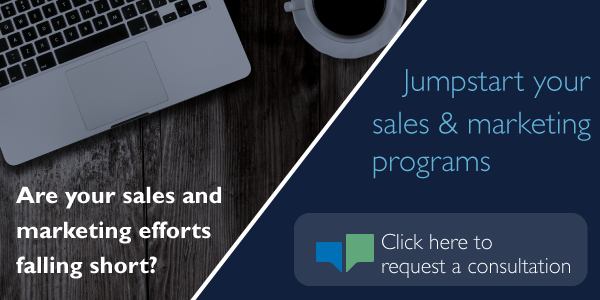A CFO’s Perspective on Outsourced Sales
As the CFO of FullFunnel, an outsourced sales and marketing organization, I spend my days analyzing our finances and planning for continued growth. However, in a previous life, I was included in many decisions to outsource key functions to agencies like FullFunnel, and was asked to give my professional and financial opinion.
Many organizations are new to outsourcing, and are understandably hesitant to relinquish some control over vital operations. I was often pulled in to look over contracts, run the numbers, and generally weigh in on whether outsourcing would be a sound business decision, in the short and long term. In this blog, I outline some of the main areas I considered when exploring outsourcing and some key lessons I’ve learned by seeing both sides of the coin.
Price
Cost savings are one of the main benefits of outsourcing, and the first area I would look at. Outside of salary and benefits, it’s important to add all of the HR costs associated with recruiting, hiring, and training a new employee. These costs can be nebulous for many organizations, scattered across multiple expense categories. When added up, the cost of a single sales representative is generally twice his or her base salary.
Depending on the partner, outsourcing can represent a significant price cut (though I would caution you against choosing a partner based solely on lowest price). The goal is to reduce overhead costs whilst maintaining quality, as well as simplifying the accounts payable process with a single bill instead of dozens across multiple departments.
Revenue Forecasting
When outsourcing a function such as sales, there is a significant impact of revenue forecasting that must be considered. When do you need the salesperson to become productive by in order to hit revenue targets? If that deadline is sooner rather than later, outsourcing is likely the more attractive route, because the ramp time can be 66% shorter. You can also expect scaling to be faster and easier when you’re working with an outsourcing partner, because they can add resources to your account in a matter of days or weeks, as compared to month-long recruiting cycles.
When forecasting, I like to deal in actuals much more than assumptions. Even though outsourcing agencies sometimes promise higher quality than your in-house team, I use existing sales reps and their productivity as a benchmark. If my in-house reps are bringing in 10 leads a month each, I’ll assume my outsourced rep can meet those numbers within a month or two of onboarding. If they beat those numbers, that will be a welcome surprise.
Contract Terms
Contract terms are vitally important when deciding between different outsourcing vendors. One of the first things I look at is the success or performance fee. How does it compare with our internal variable compensation, and how does it affect the overall cost of the outsourced provider? Is the outsourcing firm looking for a success fee for every meeting booked, or for every closed deal? The next items to look at are the contract end date and renewal terms. Is this something you have to budget for 3 months, 6 months, or a year? When can you give notice? Do any of the terms change upon renewal?
Outsourcing agencies can vary significantly when it comes to contract terms, and there are likely details that you haven’t had a chance to discuss during the sales process. Make sure you are comfortable with the final product before jumping in, even if that delays the kick-off date by a week or two.
* * *
I truly believe that outsourcing, when working with the right partner, can provide incredible value to organizations across a wide range of industries. That’s why I work at FullFunnel. For organizations considering outsourcing for the first time, or deciding between vendors, schedule a consultation with our team to learn more about our approach and our client success stories.










